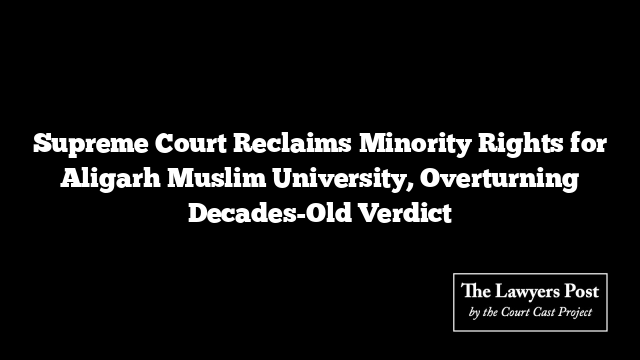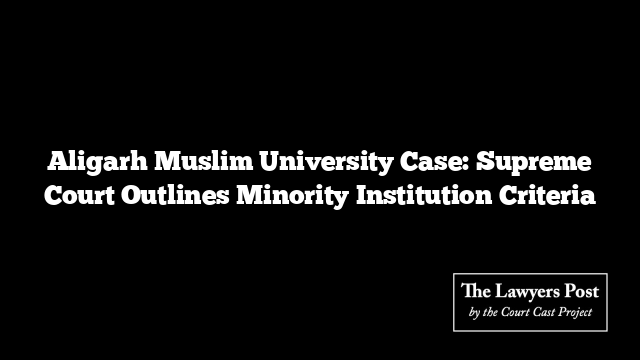In a landmark judgment, a seven-judge bench of the Supreme Court has effectively restored the minority status of Aligarh Muslim University (AMU), marking a significant shift from the 1967 precedent set in S. Azeez Basha vs. Union of India. This 4-3 majority decision, led by Chief Justice DY Chandrachud, dismantled the long-held view that AMU’s establishment under statute invalidated its claim to minority status.
The ruling revolved around Article 30, which grants minority communities the right to establish and administer educational institutions. The bench held that the creation of AMU by legislation does not erase its minority character if its origins and purpose align with the intent of a minority community. Chief Justice Chandrachud emphasized that minority institutions retain their rights as long as they were conceived with the minority community’s vision and resources, and not merely by legislative decree.
This judgment now shifts focus to a regular bench, which will scrutinize AMU’s origins to determine its minority status definitively. It places importance on who orchestrated the university’s founding efforts and who played a central role in its establishment. This nuanced approach contrasts with the earlier rigid interpretation in Azeez Basha, which hinged on AMU’s legal incorporation rather than its founding motivations and the community behind it.
Justice Surya Kant offered a partial dissent, suggesting that while the Azeez Basha stance needed refinement, he stopped short of a full reversal. Meanwhile, Justices Dipankar Datta and SC Sharma voiced strong dissents, questioning AMU’s minority designation and asserting the need for an institution’s administrative structure to reflect its foundational purpose consistently.
For AMU, this ruling opens the path to reclaim its minority institution status. The university’s journey has been intertwined with its community’s cultural and educational aspirations, which are now set to be acknowledged and potentially safeguarded under Article 30. This monumental judgment reframes AMU’s identity and affirms the Supreme Court’s evolving approach to minority rights within India’s educational landscape.





